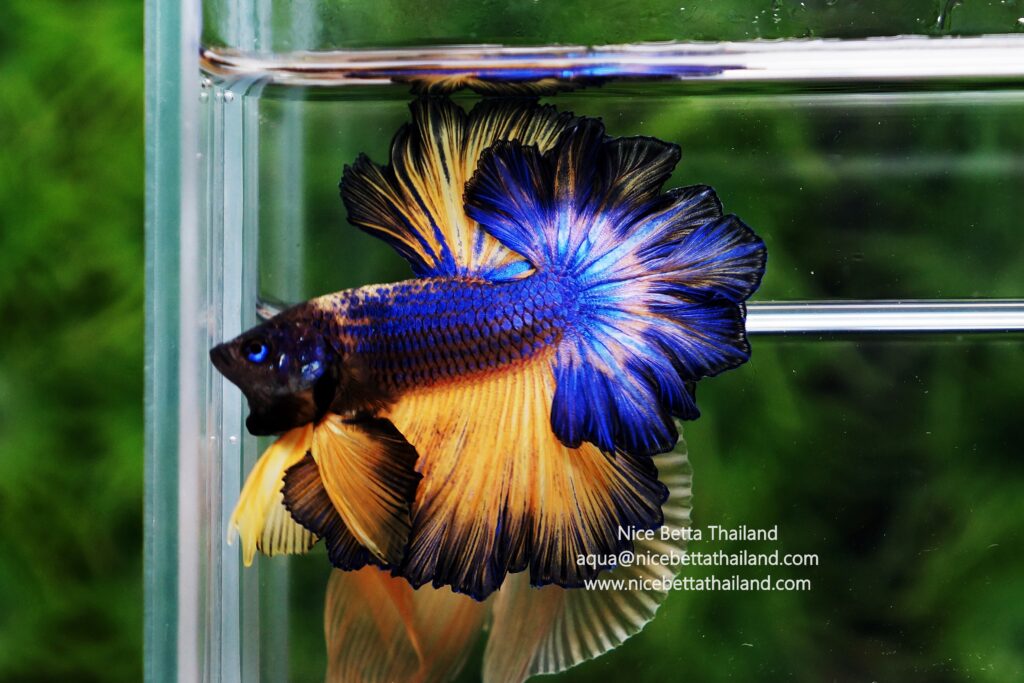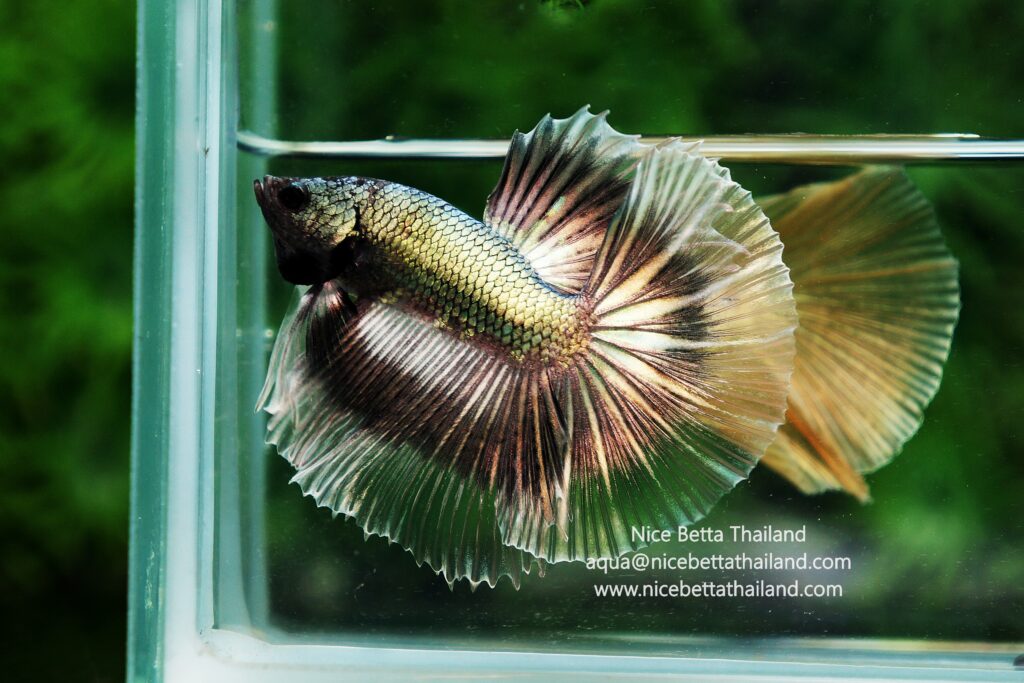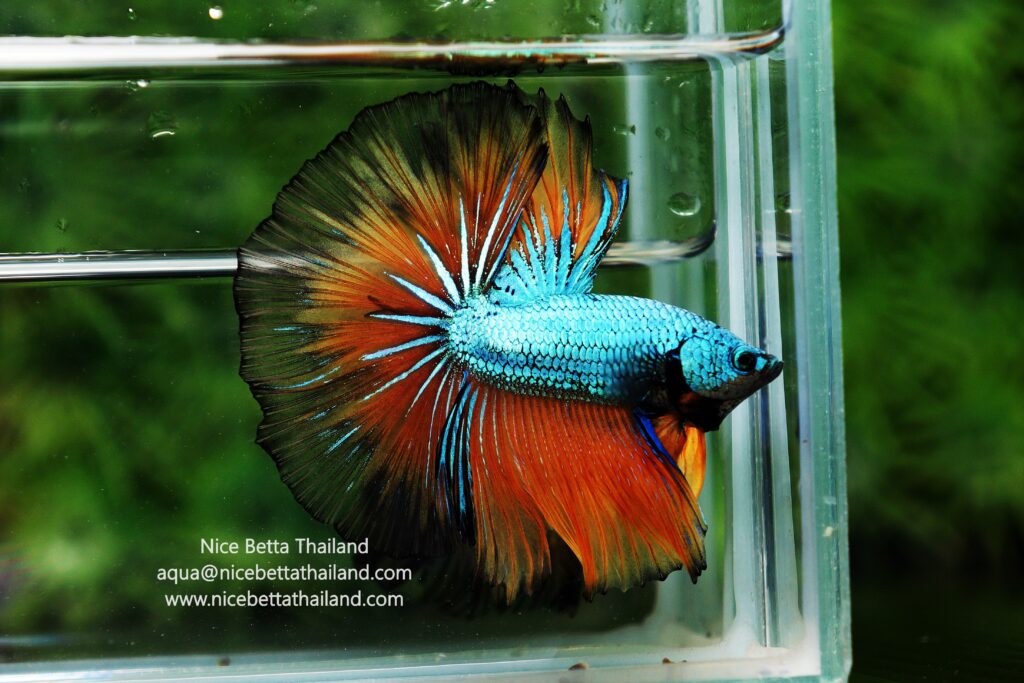Siamese fighting fish are often housed in bowls. That means no filter, and no heater. Even people who keep Betta fish in small tanks rarely provide filtration or heated water, and they survive for the most part.
Really, this is what makes the Betta so popular. For beginning fish keepers, kids, college students and others who don’t feel like dealing with the maintenance requirements of a real aquarium, the Betta is a way to have a pet fish without all the hassles of having a pet fish.
Unfortunately, these same Betta owners later end up wondering why their fish appears perpetually stressed, or suffers from some malady such as fin rot. Betta may survive in bowls of stagnant water, but that doesn’t mean they are thriving.
Cold temperatures and dirty water can cause stress for your Betta and make him more likely to get sick and die before his time. But this doesn’t mean you can’t keep your Betta in an unfiltered, unheated tank. It just means you need to fully understand the requirements of your Betta fish before deciding if that is the correct decision. It also means you need to be ready to do the extra work required to keep an unheated, unfiltered setup in top condition for your fish.

In this article we’ll take a look at whether or not you should consider housing your Betta in a tank with a heater and filter. If you are new to Betta keeping, you might want to first check out my article on proper Betta care:
How Is the Betta Different From Other Fish?
What makes us think it’s okay to keep a Betta in a bowl, anyway? We’d never consider putting any other tropical fish in a tiny bowl without a filter.
Betta fish do have physiologies that allow them to survive in low-oxygen environments in the wild. They are anabantids, or labyrinth fish, and they can come to the surface to take a gulp of air when they need it.
By the way, this is just one more reason keeping a Betta in a plant vase is a really stupid idea. Your Betta fish needs access to the water surface!
In the wilds of Southeast Asia Bettas can live for short periods in small puddles where other fish would perish. This is because of evolutionary adaptations that allow the species to persevere in times of drought or poor water conditions.
In other words, they have evolved to take in air, not just rely on the oxygen in the water, so they can survive harsh conditions.
This makes them the perfect fish to house in a small bowl, or so it seems. They can do without the aeration effect of a filter, and survive even if the water gets dirty.
But think of it like this: You could probably go a month without food if you had to, living on the stored fat in your body. As humans, we have evolved to survive periods of famine by storing fat.
But how much fun would you be having during that month without food? You’d probably be pretty miserable, and you might even suffer from some physical problems as a result of your fast. Just because you are surviving doesn’t mean you are thriving.

Does a Betta Need a Filter?
You can keep a Betta in a bowl, though I personally really hate seeing it. You need to really stay on top of weekly water changes, be sure not to overfeed, and keep the water crystal clear. You also need to make sure your room temperature remains appropriate for tropical fish, which means in the mid-70s.
When things go bad in a small bowl, they go bad really fast. Poor water conditions can lead to fin deterioration, infections and, ultimately, premature death for your Betta. This is why, if you are on the fence between a tank or a bowl, I strongly encourage you to choose the tank.
To thrive, Betta need clean water just like any other fish. Fish tanks with filtration are able to establish themselves as tiny ecosystems, although they’re ecosystems that need a little help from you.
Colonies of microorganisms develop in the tank and in the filter, and they assist in breaking down the waste caused by the fish and his uneaten food.
You don’t need to, and shouldn’t, do a complete water change in a tank with a filter as you’ll destroy those helpful microorganisms. About 30% weekly water change is enough, plus vacuuming the gravel and cleaning up any algae.
This equates to about ten minutes of work per week for a 10-gallon tank. Compare that to the hassle and time involved with removing your Betta from his bowl or tank, completely cleaning it and the decorations, then adding clean water and waiting for it to return to room temperature before you can put Betta back in his home.
Tanks with filtration are simply easier to care for. And the larger the tank, the easier it is to maintain the system. A 55-gallon tank is much, much easier to maintain than a 1-gallon tank.
That’s not to say your Betta needs a 55-gallon tank of course, but a 5-10 gallon tank isn’t a bad idea.
The actions of a filter also help to oxygenate the water. Betta do best with low-flow filtration, as they tend to get knocked around a lot by high-output filters. Even a low-flow filter will help with oxygenation.
Below are a couple of filters to consider for your Betta. No matter what you choose, keep an eye on your fish at first and make sure he is coping with the water movement without any problems.

Does a Betta Need a Heater?
When people keep Betta fish in bowls or small tanks they usually don’t consider a heater. This means the water temperature will be governed by the surrounding air temperature.
This can be bad news. Though people don’t often think of them this way, Betta are tropical fish. That means they live in warmer water in the wild. They require temperatures from the mid-70s, up to around 80 degrees.
If your room temperature is consistently in the mid-70s at the lowest, you can get by without a heater. This is true of any tropical fish tank. But if you have periods, at night for instance, when room temperature drops into the 60s or even 50s, you need to consider a heater for your Betta’s tank.
Just like pollution, water temperature is easier to control in larger volumes of water. The water temperature in a 1-3 gallon tank or bowl will drop fast as the air temperature goes down.
A 10-gallon tank will take a little longer to adjust, and big tanks even longer still.
Low water temperatures will cause stress for your Betta, and make him more at risk of disease and premature death. Remember, just because he’s surviving doesn’t mean he’s thriving. You need to keep your Betta’s water temperature between 75-80 degrees if you want him to be as healthy as possible.
One of the problems with very small tanks is that even very small heaters may heat them up too much, and you could end up killing your Betta.
This is all the more reason you should consider a tank 5 gallons or bigger for your Betta fish.
You need to monitor the water temperature and make adjustments to the heater size and/or settings as you go. Ideally, you should set up the tank, heater included, before you ever add your Betta to make sure the temperature is staying within desirable ranges.

Taking Care of Your Betta Fish
Although I’d really like to see you choose a larger tank with filtration and a heater for your Betta, you can keep him in a bowl if you stay on top of weekly water changes and make sure the water temperature is appropriate for his needs.
Missing a water change, or two, or three, will soon mean doom for your pet fish.
If you are too busy to perform the weekly maintenance on a smaller vessel, consider keeping your Betta in a 5 or 10-gallon tank with a heater and filtration. It’s less work for you, and a better environment for him.
Betta fish are truly the most abused aquarium fish in the world, by both their well-meaning but uneducated owners and by an industry that pushes them out by the millions as disposable pets. It’s unfortunate, but countless Bettas are purchased every day by people who have no clue about their needs.
It’s all about education. The first part is understanding how to care for your Betta fish correctly. The second part is telling someone else, so more of these fish can thrive instead of just survive.
Please consider keeping your Betta fish in at least a 5-gallon tank with the proper filtration and heater.
Also we have group talk about betta fish for sale and share any new tip take care information on Web3 socialFi group

Right now we have betta fish doctor help every bettas lover by top breeder in Thailand to cure or share more tip on Animalverse social
If your bettas fish sick or need tip to treat help Let’s join the group many top breeder will help to answers betta fish community
More tip :
The most expensive betta fish in the world.
All of Betta Fish A Guide on Patterns, Color in the world
How can I treat a constipated betta fish?
How to Avoid Betta Fish Fighting
15 Common Betta Fish Diseases Prevention and Treatment






